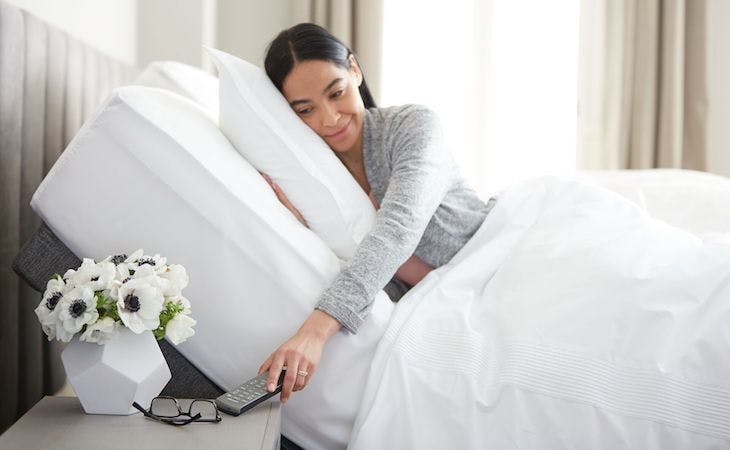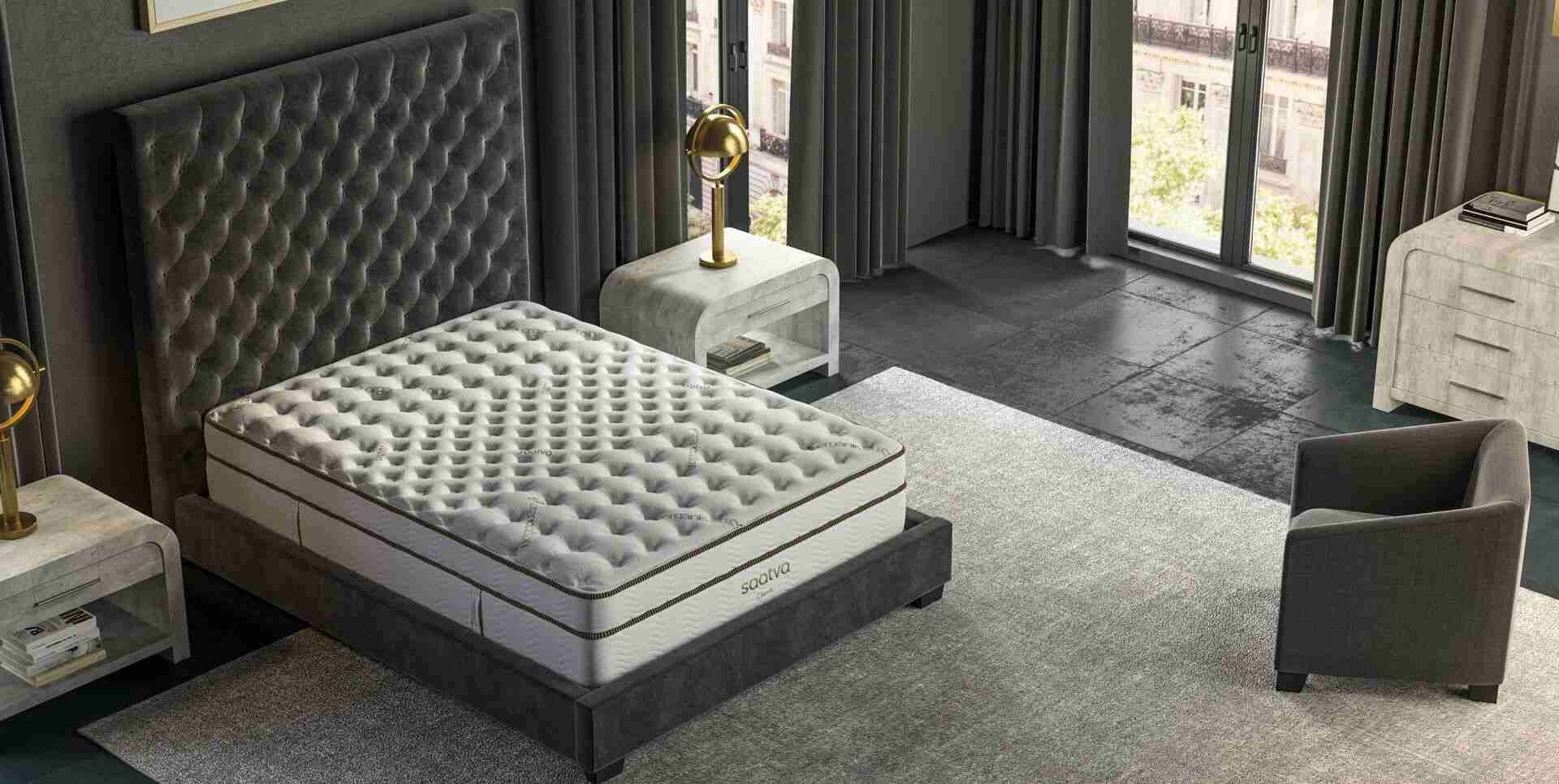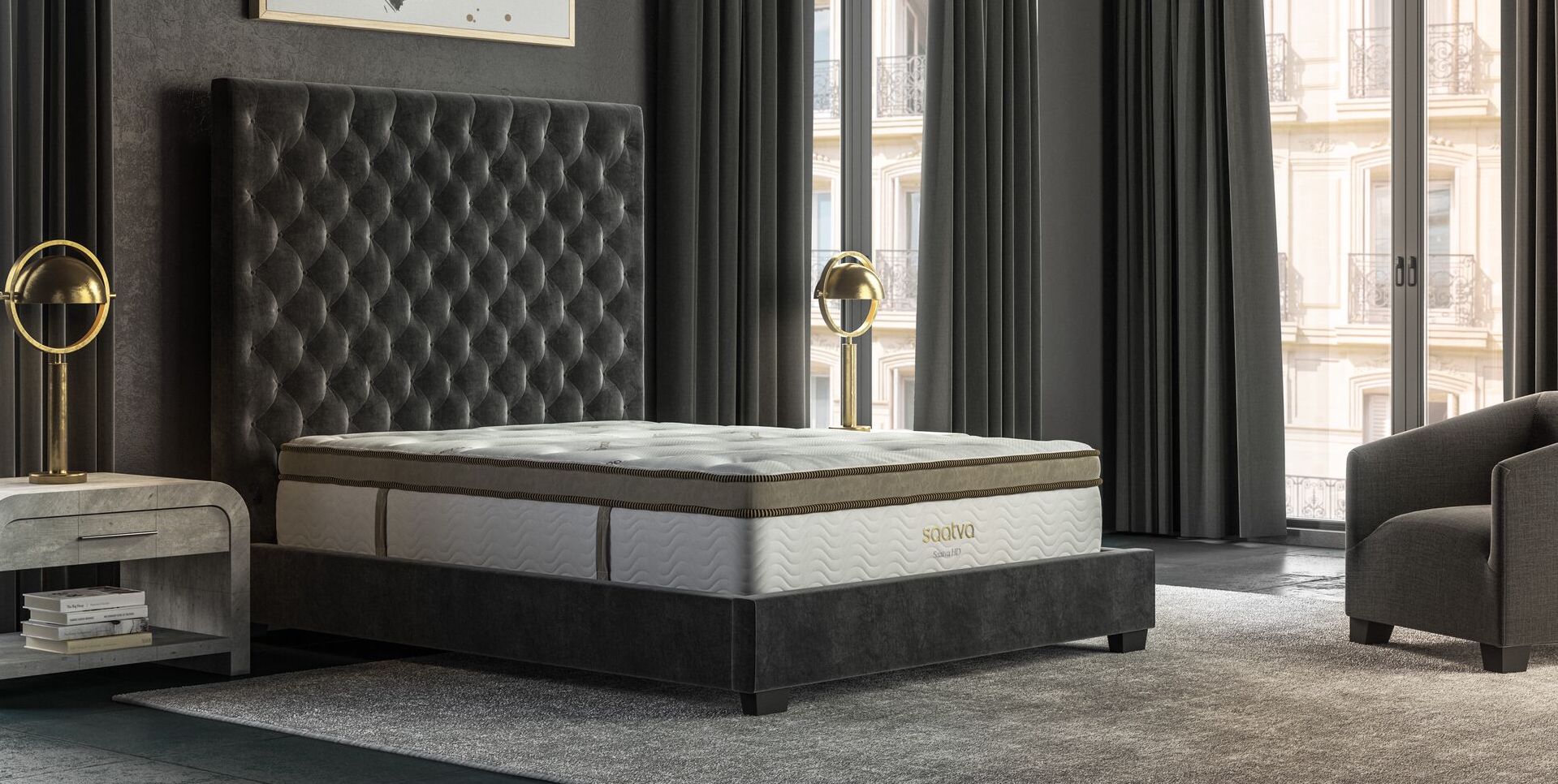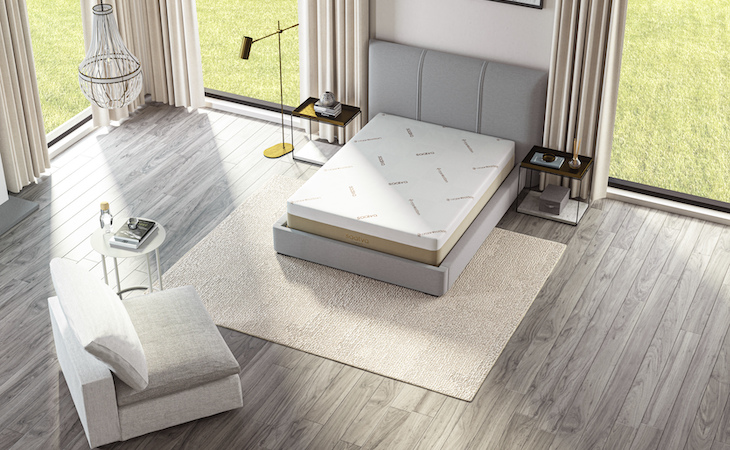It’s a proven fact that sleep is essential for your overall health and well-being. But many of us live with health conditions that can keep us from enjoying the sleep our bodies need to feel our best.
If you have a health condition that affects your ability to sleep—whether it’s chronic back pain, acid reflux, sleep apnea, or something else—the right mattress can make it easier to catch those much-needed Z’s.
Here’s how to find the best mattress for your health.
The best mattress for back pain
Oklahoma State University researchers found that back pain was greatly reduced when subjects switched to mattresses that suited their preferred sleeping position.
Back sleepers with back pain tend to do best on medium-firm mattresses, while side sleepers with back pain should opt for somewhat softer mattresses that let them “sink in” without compromising their spinal alignment.
Stomach sleepers with back pain, meanwhile, should try switching the way they sleep because this position puts a lot of stress on your neck and lower back. If you’re all-in on stomach sleeping, a firm mattress will give you a little more support to help minimize back pain. (Learn about the differences between the Saatva Classic and Saatva Rx to find out which mattress is right for your back pain.)
Related: What’s the best mattress for back pain?
The best mattress for hip pain
If you have hip pain, choose a cushioned mattress, such as one made with memory foam. This material will reduce pressure on your joints by conforming to the shape of your body.
If your hip pain or stiffness makes it hard to get out of bed, a thicker mattress or taller bed frame can help. A mattress topper made of memory foam or latex can reduce joint pressure if you’re not mattress shopping at the moment.
The best mattress for snoring
If you’re one of the estimated 90 million Americans who sometimes snore—or the 37 million who snore regularly—look for a mattress that adequately supports your head and neck. Memory foam, latex, and high-quality air mattresses all offer great head and neck support.
Elevating your head and upper body will reduce the effects of gravity on the soft tissues of the throat and open the airway so you can breathe more freely. An adjustable base is a great way to elevate the upper body. You can also use a wedge pillow to elevate your torso (and not just your head and neck).
The best mattress for sleep apnea
As with snoring, an adjustable mattress that allows you to elevate your head is ideal for mitigating the effects of sleep apnea, a potentially serious condition that causes you to stop breathing while you sleep. (If you think you may be suffering from sleep apnea, see a doctor, who can prescribe various ways to improve your sleep, such as a CPAP machine.)
Beyond choosing the right bed setup, consider your sleep position as well. Back sleeping is the worst for sleep apnea since it tends to make the soft palate relax and block the airway. Side sleeping is ideal, but keep in mind that this will put more pressure on your hips and shoulders so you’ll want a softer sleep surface.
Related: 5 ways an adjustable base can improve your health
The best mattress for acid reflux
In an American Journal of Gastroenterology survey of 1,000 people who experience heartburn at least once a week, 79% of respondents said it happens at night. It’s not surprising that three-quarters of those who have acid reflux at night also said it affected their sleep.
Besides making adjustments to avoid foods and drinks that trigger acid reflux, it can help to elevate your head in bed. If you experience acid reflux regularly, consider getting an adjustable base. By raising the upper part of your bed six to eight inches, you can rest assured that gravity will keep everything in your stomach, in your stomach.
The best mattress for pregnancy
For relief from the back pain, nausea, and frequent bathroom trips of the first trimester to the cramps, heartburn, shortness of breath, and baby’s kicks in the second and third trimester, the pregnant body needs a supportive mattress. Memory foam is ideal when you’re expecting because it can help alleviate pressure points and will conform to your changing body.
Some memory foam can sleep hot, so make sure to look for a mattress infused with cooling materials, like gel or graphite. Latex is also a good choice, especially for pregnant women who toss and turn or need to get out of bed multiple times during the night. That’s because like memory foam, latex mattresses tend to have good motion isolation, meaning that the movement of one person is less likely to disrupt sleep for the other party.
Don’t want to buy a new mattress during pregnancy? You can also try adding a memory foam or latex topper to your existing mattress for a temporary fix.
The best mattress for menopause
Many women who are going through menopause frequently struggle with insomnia and other sleep troubles. An overly warm bed will only cause additional discomfort when you’re dealing with hot flashes.
The coolest mattresses are innerspring or hybrid mattresses that layer foam, fabric padding, and coils to promote breathability. Although foam mattresses generally sleep warmer, more recent generations of memory foam, such as those made with plant-based ingredients and infused with cooling materials, retain less heat.
Related: A doctor’s advice for sleeping better during menopause
The best mattress for arthritis
Most rheumatoid arthritis organizations recommend a firm mattress that supports the shoulders and hips while keeping the spine in alignment. A pressure-relieving mattress or mattress topper made of memory foam or latex can reduce the pressure on hip and shoulder joints, especially for side sleepers.
Because everyone experiences arthritis differently, there’s no one sleep position that will work for all. If you sleep on your back, though, putting a pillow or bolster under your knees will take pressure off sore knees and your lower back.
The best mattress for fibromyalgia
Fibromyalgia is a chronic disorder that causes fatigue and muscle soreness. It’s estimated to affect 2% to 6% of people worldwide. If you have fibromyalgia, the right mattress for you is one that conforms to your body and helps to relieve pressure points. Memory foam is one material that fits the bill.
As for comfort level, a firm mattress will offer better support for your spine than a soft mattress, which can ultimately aggravate pain. You should also look for a good pillow for proper neck support.
Can’t fall asleep? Here’s how to sleep better when you have insomnia.











